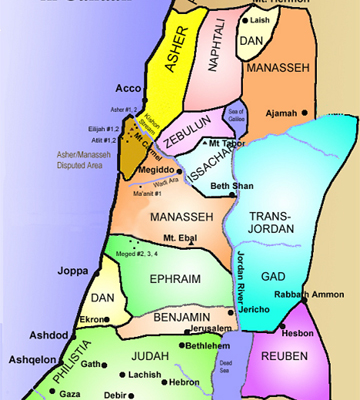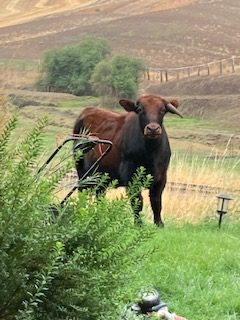Butter Dairy

The Bible is combined with references to butter, the product of milk from the cow. Not only has it been regarded from ancient time as a food fit for the gods, but its use appears to have been divinely recommended and its users promised certain immunities against evil. Butter was used to offer to travelers. Our Lord Jesus Christ was given butter and honey to eat, that he may know to refuse the evil, and choose the good.
Abraham entertained LORD appeared unto him in the plains of Mamre: and he sat in the tent door in the heat of the day; three men stood by him. Abraham ran to meet them from the tent door and bowed down to them. Abraham took care of their needs then took it upon himself to pick a tender calf and had it dressed. Then Abraham took butter, and milk, and the calf which he had dressed, and set it before them; and he stood by them under the tree, and they did eat. (Genesis 18:1-8). It can be said that butter is used for royal guests.
For the LORD’S portion is his people; Jacob is the lot of his inheritance. He found him in a desert land, and in the waste howling wilderness; he led him about, he instructed him, he kept him as the apple of his eye. As an eagle stirred up her nest, fluttered over her young, spread abroad her wings, takes them, bears them on her wings: So the LORD alone did lead him, and there was no strange god with him. He made him ride on the high places of the earth, that he might eat the increase of the fields; and he made him to suck honey out of the rock, and oil out of the flinty rock. Butter of cattle, and milk of sheep, with fat of lambs, and rams of the breed of Bashan, and goats, with the fat of kidneys of wheat; and thou didst drink the pure blood of the grape. (Deuteronomy 32:9-14).
It was during a time of trouble in the land of Israel. Jael was the Kenite woman who slew Sisera the Canaanite chieftain after inviting him into the sanctity of her tent. The Kenites were the people of Jethro the father-in-law of Moses and had thrown in their lot with Israel when Moses led that nation to the Promised Land. Sisera was a fugitive from the Israelite army. He asked water, and she gave him milk; she brought forth butter in a lordly dish. (Judge 5:25).
There was a contest between David and his son Absalom that was hasting towards a crisis. Absalom called a council of war, in which Ahithophel urges despatch (2 Samuel 17:1-4), but Hushai recommends deliberation (2 Samuel 17:5-13); and Hushai’s counsel is agreed to (2 Samuel 17:14), for annoyance at which Ahithophel hangs himself (2 Samuel 17:23). King David knew about the proceedings. (2 Samuel 17:15-21). King David marches to the other side Jordan (2 Samuel 17:22-24). Absalom and his forces march after him into the land of Gilead on the other side Jordan (2 Samuel 17:25, 2 Samuel 17:26). The friends David met with was Shobi, a younger brother of the royal family of the Ammonites, was kind to him, 2 Samuel 17:27. David and his men, now that they were weary with a long march, brought him furniture for his house, beds and basins, and provision for his table, wheat and barley, And honey, and butter, and sheep, and cheese of kine, for David, and for the people that were with him, to eat: for they said, The people is hungry, and weary, and thirsty, in the wilderness. (2 Samuel 17:29).
Rivers the floods, the brooks of honey and butter shall not be seen by the wicked. (Job 20:17). Honey and butter are symbols of prosperity. The LORD God said, He would bring the children of Israel out of the affliction of Egypt unto the land of the Canaanites, and the Hittites, and the Amorites, and the Perizzites, and the Hivites, and the Jebusites, unto a land flowing with milk and honey. (Exodus 3:17).
When the Almighty was yet with me, when my children were about me; when I washed my steps with butter, and the rock poured me out rivers of oil is saying: When the LORD God is with us it is the highest appearance of prosperity and happiness. (Job 29:6).
The words of his mouth were smoother than butter, but war was in his heart: his words were softer than oil, yet were they drawn swords. Cast thy burden upon the LORD, and he shall sustain thee: he shall never suffer the righteous to be moved. The LORD God shall sustain and shall never suffer the righteous to be moved. The LORD God shall bring those down into the pit of destruction blood and deceitful men shall not live out half their days. I will trust in Him. (Psalms 55:21-23).
“If you have done foolishly in lifting up yourself, or if you have thought evil, you should lay your hand upon your mouth. For the churning of milk bring forth butter. And the wringing of the nose brings forth blood. But the forcing of wrath brings forth strife. (Proverbs 30:32-33). Criticizing, complaining continually, or any other manner of prosecuting another with showings of one’s displeasure or bitterness. This could forth violence and strife just as naturally as churning brings forth butter, or wringing the nose makes it bleed.
The Lord himself shall give you a sign; Behold, a virgin shall conceive, and bear a son, and shall call his name Immanuel. Butter and honey shall he eat, that he may know to refuse the evil, and choose the good. For before the child shall know to refuse the evil, and choose the good, the land that thou abhor shall be forsaken of both her kings. (Isaiah 7:14-16). Our Lord Jesus Christ was given butter and honey to eat, that he may know to refuse the evil, and choose the good.
Cite Article Source
MLA Style Citation:
Holstein, Joanne “Butter Dairy:.” Becker Bible Studies Library Feb 2015.< https://guidedbiblestudies.com/?p=2358,>.
APA Style Citation:
Holstein, Joanne (2015, February) “Butter Dairy:.” Becker Bible Studies Library. Retrieved from https://guidedbiblestudies.com/?p=2358,.
Chicago Style Citation:
Holstein, Joanne (2015) “Butter Dairy:.” Becker Bible Studies Library (February), https://guidedbiblestudies.com/?p=2358, (accessed).


